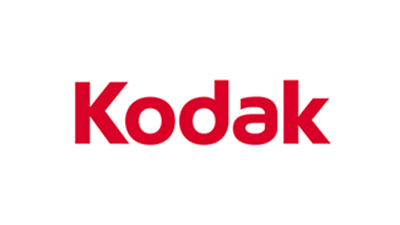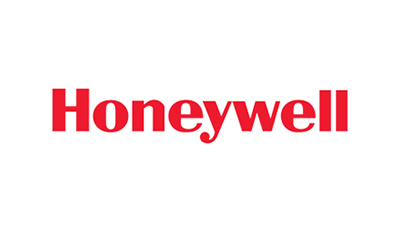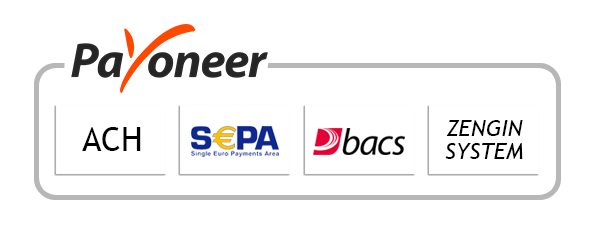
-
Report ID 136332 -
Published Date 17-Oct -
Delivery Format PDF/PPT/Word -
Editor's Rating
-
Report Details
The report on Radio Access Network Market offers in-depth analysis on market trends, drivers, restraints, opportunities etc. Along with qualitative information, this report include the quantitative analysis of various segments in terms of market share, growth, opportunity analysis, market value, etc. for the forecast years. The global radio access network market is segmented on the basis of type, application, and geography.
The global Radio Access Network market was valued at US$ XX.X Mn in 2018 and is projected to increase significantly at a CAGR of x.x% from 2019 to 2028.
Radio Access Network Market Scope:
By type, the market is segmented into 2G, 3G, 4G/LTE, and 5G. By application, the market is divided into Dense Area Urban, Enterprise, Public Venue Environments and Others.
Based on geography, the market is analyzed across North America, Europe, Asia-Pacific, Latin America, and Middle East and Africa. Major players profiled in the report include Huawei, Ericsson, Nokia Networks, ZTE, Samsung, NEC, Cisco, Qualcomm, Intel, Fujitsu, Juniper Networks, Hewlett Packard Enterprise (HPE), AT&T, Verizon Communications, Huber+Suhner, Commscope, Airspan Networks, Qorvo, and LG Electronics.
Key Market Segments
Type
2G
3G
4G/LTE
5G
Application
Dense Area Urban
Enterprise
Public Venue Environments
Others
Key Market Players included in the report:
Huawei
Ericsson
Nokia Networks
ZTE
Samsung
NEC
Cisco
Qualcomm
Intel
Fujitsu
Juniper Networks
Hewlett Packard Enterprise (HPE)
AT&T
Verizon Communications
Huber+Suhner
Commscope
Airspan Networks
Qorvo
LG Electronics
Reasons to Get this Report:
In an insight outlook, this research report has dedicated to several quantities of analysis industry research (global industry trends) and Radio Access Network Market share analysis of high players, along with company profiles, and which collectively include the fundamental opinions regarding the market landscape; emerging and high-growth sections of Radio Access Network Market; high-growth regions; and market drivers, restraints, and also market chances.
The analysis covers Radio Access Network Market and its advancements across different industry verticals as well as regions. It targets estimating the current market size and growth potential of the global Radio Access Network Market across sections such as also application and representatives.
Additionally, the analysis also has a comprehensive review of the crucial players on the Radio Access Network Market together side their company profiles, SWOT analysis, latest advancements, and business plans.
The analysis objectives of the report are:
To equitably share in-depth info regarding the crucial elements impacting the increase of industry (growth capacity, chances, drivers, and industry-specific challenges and risks).
To know the Radio Access Network Market by pinpointing its many subsegments.
To profile the important players and analyze their growth plans.
To endeavor the amount and value of Radio Access Network sub-markets, depending on key regions (various vital states).
To analyze Radio Access Network Market concerning growth trends, prospects, and also their participation in the entire sector.
To examine and study the Radio Access Network Market size (volume & value) from the company, essential regions/countries, products, and application, background information from 2015 to 2020, and also prediction to 2031.
Primary worldwide Radio Access Network Market manufacturing companies, to specify, clarify and analyze the product sales amount, value and market share, market rivalry landscape, SWOT analysis and development plans next coming years.
To examine competitive progress such as expansions, arrangements, new product launches, and acquisitions on the market.
-
Table Of Content
1. Radio Access Network Market Introduction
1.1. Definition
1.2. Taxonomy
1.3. Research Scope2. Executive Summary
2.1. Key Findings by Major Segments
2.2. Top strategies by Major Players3. Global Radio Access Network Market Overview
3.1. Radio Access Network Market Dynamics
3.1.1. Drivers
3.1.2. Opportunities
3.1.3. Restraints
3.1.4. Challenges3.2. PESTLE Analysis
3.3. Opportunity Map Analysis
3.4. PORTER’S Five Forces Analysis
3.5. Market Competition Scenario Analysis
3.6. Product Life Cycle Analysis
3.7. Opportunity Orbits
3.8. Manufacturer Intensity Map4. Global Radio Access Network Market Value ((US$ Mn)), Share (%), and Growth Rate (%) Comparison by Type, 2012-2028
4.1. Global Radio Access Network Market Analysis by Type: Introduction
4.2. Market Size and Forecast by Region
4.3. 2G4.4. 3G
4.5. 4G/LTE
4.6. 5G
5. Global Radio Access Network Market Value ((US$ Mn)), Share (%), and Growth Rate (%) Comparison by Application, 2012-2028
5.1. Global Radio Access Network Market Analysis by Application: Introduction
5.2. Market Size and Forecast by Region
5.3. Dense Area Urban5.4. Enterprise
5.5. Public Venue Environments
5.6. Others
5.7.
6. Global Radio Access Network Market Value ((US$ Mn)), Share (%), and Growth Rate (%) Comparison by Region, 2012-2028
6.1. North America
6.1.1. North America Radio Access Network Market: Regional Trend Analysis
6.1.1.1. US
6.1.1.2. Canada
6.1.1.3. Mexico6.2.1. Europe
6.2.1. Europe Radio Access Network Market: Regional Trend Analysis
6.2.1.1. Germany
6.2.1.2. France
6.2.1.3. UK
6.2.1.4. Russia
6.2.1.5. Italy
6.2.1.6. Spain
6.2.1.7. Rest of Europe6.3. Asia-Pacific
6.3.1. Asia-Pacific Radio Access Network Market: Regional Trend Analysis
6.3.1.1. China
6.3.1.2. Japan
6.3.1.3. Korea
6.3.1.4. India
6.3.1.5. Rest of Asia6.4. Latin America
6.4.1. Latin America Radio Access Network Market: Regional Trend Analysis
6.4.1.1. Brazil
6.4.1.2. Argentina
6.4.1.3. Rest of Latin America6.5. Middle East and Africa
6.5.1. Middle East and Africa Radio Access Network Market: Regional Trend Analysis
6.5.1.1. GCC
6.5.1.2. South Africa
6.5.1.3. Israel
6.5.1.4. Rest of MEA7. Global Radio Access Network Market Competitive Landscape, Market Share Analysis, and Company Profiles
7.1. Market Share Analysis
7.2. Company Profiles
7.3. Huawei7.3.1. Company Overview
7.3.2. Financial Highlights
7.3.3. Product Portfolio
7.3.4. SWOT Analysis
7.3.5. Key Strategies and Developments7.4. Ericsson
7.4.1. Company Overview
7.4.2. Financial Highlights
7.4.3. Product Portfolio
7.4.4. SWOT Analysis
7.4.5. Key Strategies and Developments7.5. Nokia Networks
7.5.1. Company Overview
7.5.2. Financial Highlights
7.5.3. Product Portfolio
7.5.4. SWOT Analysis
7.5.5. Key Strategies and Developments7.6. ZTE
7.6.1. Company Overview
7.6.2. Financial Highlights
7.6.3. Product Portfolio
7.6.4. SWOT Analysis
7.6.5. Key Strategies and Developments7.7. Samsung
7.7.1. Company Overview
7.7.2. Financial Highlights
7.7.3. Product Portfolio
7.7.4. SWOT Analysis
7.7.5. Key Strategies and Developments7.8. NEC
7.8.1. Company Overview
7.8.2. Financial Highlights
7.8.3. Product Portfolio
7.8.4. SWOT Analysis
7.8.5. Key Strategies and Developments7.9. Cisco
7.9.1. Company Overview
7.9.2. Financial Highlights
7.9.3. Product Portfolio
7.9.4. SWOT Analysis
7.9.5. Key Strategies and Developments7.10. Qualcomm
7.10.1. Company Overview
7.10.2. Financial Highlights
7.10.3. Product Portfolio
7.10.4. SWOT Analysis
7.10.5. Key Strategies and Developments7.11. Intel
7.11.1. Company Overview
7.11.2. Financial Highlights
7.11.3. Product Portfolio
7.11.4. SWOT Analysis
7.11.5. Key Strategies and Developments7.12. Fujitsu
7.12.1. Company Overview
7.12.2. Financial Highlights
7.12.3. Product Portfolio
7.12.4. SWOT Analysis
7.12.5. Key Strategies and Developments7.13. Juniper Networks
7.13.1. Company Overview
7.13.2. Financial Highlights
7.13.3. Product Portfolio
7.13.4. SWOT Analysis
7.13.5. Key Strategies and Developments7.14. Hewlett Packard Enterprise (HPE)
7.14.1. Company Overview
7.14.2. Financial Highlights
7.14.3. Product Portfolio
7.14.4. SWOT Analysis
7.14.5. Key Strategies and Developments7.15. AT&T
7.15.1. Company Overview
7.15.2. Financial Highlights
7.15.3. Product Portfolio
7.15.4. SWOT Analysis
7.15.5. Key Strategies and Developments7.16. Verizon Communications
7.16.1. Company Overview
7.16.2. Financial Highlights
7.16.3. Product Portfolio
7.16.4. SWOT Analysis
7.16.5. Key Strategies and Developments7.17. Huber+Suhner
7.17.1. Company Overview
7.17.2. Financial Highlights
7.17.3. Product Portfolio
7.17.4. SWOT Analysis
7.17.5. Key Strategies and Developments7.18. Commscope
7.18.1. Company Overview
7.18.2. Financial Highlights
7.18.3. Product Portfolio
7.18.4. SWOT Analysis
7.18.5. Key Strategies and Developments7.19. Airspan Networks
7.19.1. Company Overview
7.19.2. Financial Highlights
7.19.3. Product Portfolio
7.19.4. SWOT Analysis
7.19.5. Key Strategies and Developments7.20. Qorvo
7.20.1. Company Overview
7.20.2. Financial Highlights
7.20.3. Product Portfolio
7.20.4. SWOT Analysis
7.20.5. Key Strategies and Developments7.21. LG Electronics
7.21.1. Company Overview
7.21.2. Financial Highlights
7.21.3. Product Portfolio
7.21.4. SWOT Analysis
7.21.5. Key Strategies and Developments8. Assumptions and Acronyms
9. Research Methodology
10. Contact -
Inquiry Before Buying
Research Insights & Deliverables
 Development and Future Forecast
Development and Future Forecast Competitive benchmarking
Competitive benchmarking Company Revenue Statistics
Company Revenue Statistics Rising Regional Opportunities
Rising Regional Opportunities Technology Trends and Dynamics
Technology Trends and Dynamics Technology Assessment
Technology Assessment
-
Request Sample
Research Insights & Deliverables
 Development and Future Forecast
Development and Future Forecast Competitive benchmarking
Competitive benchmarking Company Revenue Statistics
Company Revenue Statistics Rising Regional Opportunities
Rising Regional Opportunities Technology Trends and Dynamics
Technology Trends and Dynamics Technology Assessment
Technology Assessment














